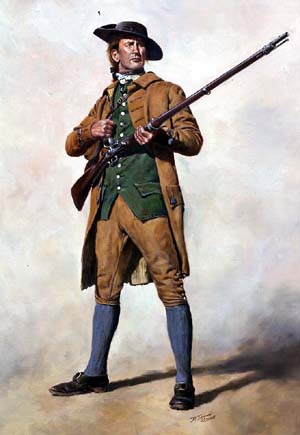We have all heard stories of the Minuteman during the Revolutionary War. Everyday men and women who stood prepared, at a moment’s notice, to respond to advances by the Redcoats. In today’s troubled times, many people feel the need for good men and women willing to step up and lead when times get tough. Some involve themselves in one of the various Militia movements throughout America. Others join TEA Parties, CERT teams, HAM radio clubs, or volunteer at their local fire departments. As an Armed Citizen, we often feel responsible for safeguarding the well-being of others, and in previous articles I have touched upon the need to define exactly what your area of responsibility is. For a few of us, that area of responsibility may extend beyond our immediate family and friends. I once asked Tiger McKee of Shootrite Firearms Academy what skills he thought an Armed Citizen needed beyond those of self-defense. His answer was simple, “As many as you can learn.” I personally feel that first aid should be among the first of these skills an Armed Citizen should learn, because anyone who is prepared to take a life in defense should be equally prepared to save one should the need arise. To that end, I would like to take a moment to define what my vision is of a modern Minuteman.
The modern day Minuteman should possess all of the aspects of an Armed Citizen, but needs to be so much more than just an armed first responder. A Minuteman must find a way to contribute back to society as a whole. I strongly recommend gaining a background in first aid and CPR as a starting point. People get injured going about their normal lives every day, and having not just the ability but the means to assist others is the first step towards helping others. If you carry a gun or knife for defensive purposes, you should at least keep some basic first aid supplies with you in your vehicle.
Find a way to get involved. I cut my teeth with the CERT program, which stands for Community Emergency Response Team. The CERT program introduces civilians to the concepts of preparedness, basic firefighting, disaster medical operations and light search and rescue procedures. In the event of a natural disaster, the role of a CERT team is to supplement the resources of professional first responders. The CERT course culminates in a disaster simulation that puts the prospective CERT teams to the test, suppressing fires, searching a disaster area for casualties, setting up a triage and base of operations, and ultimately coordinating with professional first responders who respond to the scene a few hours later.
If a CERT program isn’t located near you, or simply isn’t your cup of tea, volunteer with your local fire or Sheriff’s department, get involved with your church’s food pantry, or find another charity to spend a few hours a month with. Get your children involved with Boy or Girl Scouts. The motto of the Boy Scouts is “Be prepared.” That lesson has influenced my life since I was a child, and it will impact your children as well. Consider getting your HAM license, or training as an official weather spotter. The bottom line is find a way to give back to the nation that has blessed you so much.
Aside from getting involved, never stop learning. Study history, particularly American history. To ensure you are fully aware of the implications of the history of Minutemen, study our Revolutionary War, the Constitution, and the Declaration of Independence. Understand what it was that our Founding Fathers fought for. Learn some basic woodsmanship skills, particularly the use of map and compass and fire starting. Celebrate America’s tradition of riflemen by attending some Project Appleseed training. I have set a personal goal to attend Appleseed training next year with my oldest son. Pass on our heritage to the next generation so we don’t learn what it means to be an American.
Ensure you have some basic preparations for emergencies in your home. Ready.gov recommends you have a three day supply of food, water, and daily medications in your home for yourself and your family. We all know that three days is a measley store of goods. Instead I challenge you to extend those stores to provide food, water, and any daily medication for your family for a week. In doing so, you may find yourself in a position to help out neighbors in need. In future articles I will discuss the issue of disaster preparedness in more thorough detail.
As the saying goes, no man is an island. In today’s troubled times, find a way to put your particular niche of talents and interests into service to your community. After all, community is the key to enduring whatever troubles face us. As Benjamin Franklin said at the signing of the Declaration of Independence, “We must all hang together, or assuredly we shall all hang separately.”
-Grizz



Leave a comment